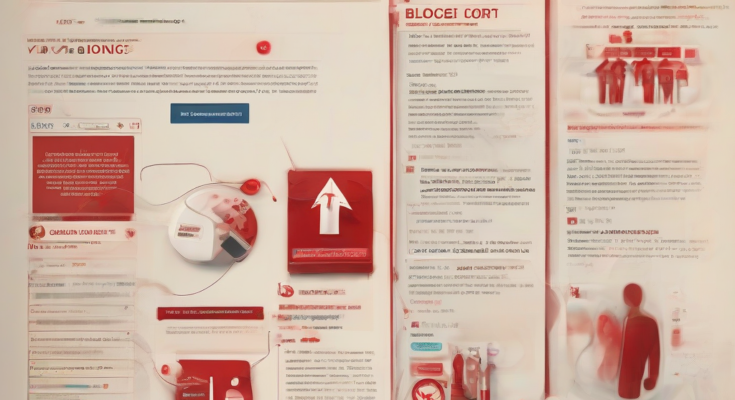Vitalant: Your Lifeline to Saving Lives Through Blood Donation
Vitalant, formerly known as Blood Systems, is a leading nonprofit blood center dedicated to providing a safe and reliable blood supply to hospitals and patients across the United States. Their mission extends beyond simply collecting blood; it encompasses a comprehensive approach to blood donation, including donor care, blood processing and testing, and innovative research aimed at improving blood transfusion practices.
The Critical Need for Blood Donations
The demand for blood is constant and unwavering. Every two seconds, someone in the U.S. needs blood. This demand is driven by a variety of factors, including accidents, surgeries, chronic illnesses, and childbirth complications. Without a consistent supply of blood donations, hospitals wouldn’t be able to provide the life-saving treatments their patients desperately need. Vitalant plays a pivotal role in ensuring that this vital resource is readily available.
- Trauma victims: Accidents and injuries often result in massive blood loss, requiring immediate transfusions.
- Cancer patients: Many cancer treatments involve blood transfusions to help patients cope with the side effects of chemotherapy and radiation therapy.
- Surgical patients: Surgeries, both major and minor, may require blood transfusions to replace blood lost during the procedure.
- Patients with blood disorders: Individuals with conditions such as sickle cell anemia or hemophilia require regular blood transfusions to manage their symptoms.
- New mothers: Postpartum hemorrhage is a serious complication that can require significant blood transfusions.
The Vitalant Donation Process: A Step-by-Step Guide
Donating blood with Vitalant is a straightforward and relatively quick process. Their facilities are designed for donor comfort and convenience, with trained staff available to answer questions and address any concerns. The process generally involves the following steps:
- Pre-donation health screening: This includes a brief questionnaire about your health history, travel history, and medications. The staff will also check your blood pressure, pulse, temperature, and hemoglobin levels to ensure you’re eligible to donate.
- Blood donation: The actual donation process takes approximately 8-10 minutes. A trained phlebotomist will insert a needle into a vein in your arm, and the blood will be collected into a sterile bag. Most donors find the procedure to be relatively painless.
- Post-donation refreshments: After donating, you’ll be offered refreshments, such as juice and snacks, to help replenish your fluids and energy.
- Rest and recovery: It’s recommended to rest for a few minutes after donating to allow your body to recover. You may experience some mild side effects, such as dizziness or lightheadedness, which are generally temporary.
- Post-donation information: You will receive information about your donation, including your blood type and any potential health information.
Eligibility Requirements for Blood Donation
To ensure the safety and quality of the blood supply, Vitalant has established eligibility requirements for blood donors. These requirements are designed to protect both the donor and the recipient. Generally, you must be at least 16 years old (with parental consent if under 18), weigh at least 110 pounds, and be in good health. However, specific requirements may vary depending on your location and the type of blood donation. It’s always best to check Vitalant’s website or contact a local donation center for the most up-to-date information.
- Age: Minimum age requirements may vary by state.
- Weight: Minimum weight requirements ensure sufficient blood volume for donation.
- Health: Donors must be in good health and free from certain illnesses or conditions.
- Medications: Certain medications may disqualify you from donating.
- Travel history: Recent travel to certain regions may temporarily disqualify you due to potential exposure to infectious diseases.
- Recent tattoos or piercings: There may be a waiting period after receiving a tattoo or piercing.
The Importance of Regular Blood Donations
The need for blood is ongoing, and regular donations are crucial to maintaining an adequate supply. Even a single blood donation can save multiple lives, as blood components can be separated and used for different purposes. Donating blood is a selfless act that can have a profound impact on the lives of others. Consider making regular donations a part of your routine to contribute to this critical life-saving effort.
Regular blood donors are essential because blood has a limited shelf life. Red blood cells can only be stored for up to 42 days, while platelets must be used within five days. This short shelf life means that a constant supply of fresh donations is essential to meet the ongoing demand.
Vitalant’s Commitment to Safety and Quality
Vitalant prioritizes safety and quality throughout the entire blood donation process. Rigorous testing procedures are in place to ensure that all donated blood is safe and free from infectious diseases. Their facilities are meticulously maintained and adhere to strict standards of hygiene and cleanliness. Vitalant’s commitment to safety and quality is a testament to their dedication to providing life-saving blood to patients in need.
- Rigorous testing: Donated blood undergoes extensive testing for various infectious diseases, including HIV, hepatitis B and C, and syphilis.
- Sterile equipment: All equipment used in the donation process is sterile and single-use to prevent contamination.
- Trained staff: Vitalant employs highly trained and experienced staff to handle the collection and processing of blood donations.
- Quality control: Strict quality control measures are in place at every stage of the process to ensure the safety and quality of the blood supply.
Beyond Blood Donation: Vitalant’s Ongoing Research and Initiatives
Vitalant’s work extends beyond simply collecting and distributing blood. They are actively involved in groundbreaking research aimed at improving blood transfusion practices and developing new technologies to enhance the safety and efficacy of blood products. Their commitment to innovation ensures a continuous improvement in the care and treatment of patients relying on blood transfusions.
- Research into blood substitutes: Vitalant invests in research to explore alternative blood products that could potentially alleviate the reliance on traditional blood donations.
- Improving blood storage and preservation techniques: Ongoing research focuses on extending the shelf life of blood products and improving their overall quality.
- Developing new blood testing methods: Vitalant is committed to improving the accuracy and efficiency of blood testing procedures.
- Community outreach programs: Vitalant actively engages in community outreach to educate the public about the importance of blood donation and to encourage participation.
Finding a Vitalant Donation Center Near You
Finding a Vitalant blood donation center near you is easy. Simply visit their website and use their convenient online search tool. You can enter your zip code or city and state to locate the nearest donation center and find information about their operating hours, appointment scheduling, and special donation drives.
Participating in a blood drive or making a routine appointment at your local Vitalant center is a simple yet incredibly impactful way to make a difference in the lives of countless individuals. By donating blood, you’re not just giving blood; you’re giving hope, strength, and potentially, life itself.



